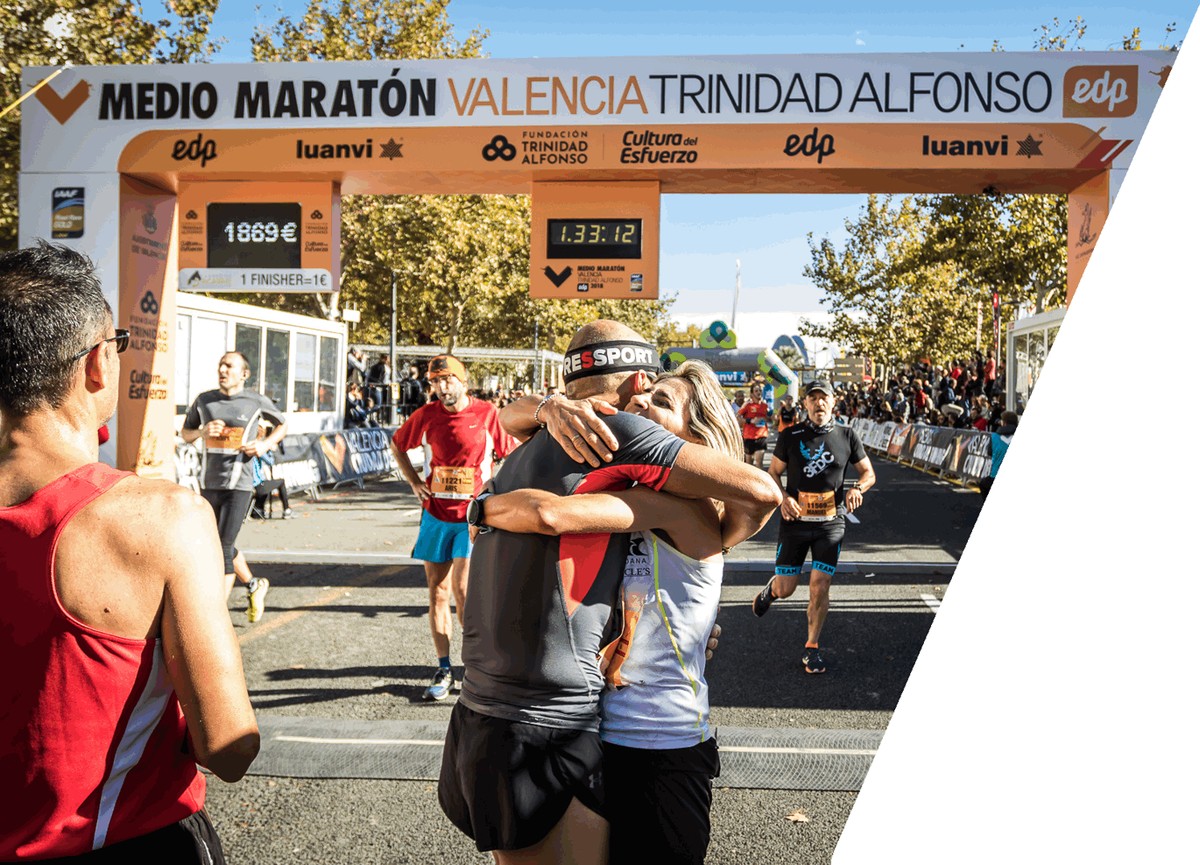
Medical tips to help you safely run the Valencia Half-Marathon
The 27th of October marks the 29th Valencia-Trinidad Alfonso EDP Half-Marathon. We want to ensure that you safely complete the race.

The 27th of October marks the 29th Valencia-Trinidad Alfonso EDP Half-Marathon. We want to ensure that you safely complete the race.
Many of you will have run in other events but for others, competing in a half-marathon will be new. Whatever your case, here are some general tips to make sure that your experience of the trial is both an enjoyable and unforgettable one.
Needless to say, you should work at meeting your training goals and be aware of what you are up against.
We want you to be in tip-top condition on the day of the trial. Now is a good moment to go for a medical check-up if you have not already done so. Just as you have medical check-ups in the workplace, so you need to have one before running a half-marathon. This is to ensure that you are in fine fettle before training for the race. Nutritional deficits, anaemia, changes in electrolyte balances and other minor problems that might otherwise go unnoticed can be picked up by simple tests. If you have never had a medical check-up, now is the moment to consult a specialist, who will recommend suitable tests.
If you are 40 or over, or suffer from some kind of chronic disease (hypertension, diabetes, dyslipidemia [an abnormal amount of lipids], and so on), it is vital that you mention your interest in taking part in the trial to your doctor.
What we eat and drink has a direct impact on our performance — not only in the days running up to the race but also in the months of training beforehand.
Your are going to make a big physical effort, which is why you need to take care with your nutrition. Maybe now is a good moment to acquire good eating habits and observe a balanced diet.
Avoid alcohol and drugs.
Drink sufficient liquids throughout your training, not just in the days leading up to the race.
Ensure you have a varied diet based largely on carbohydrates and proteins. Avoid saturated fats and ensure that any fats you do consume are unsaturated ones, such as those found in olive oil and ‘blue’ (oily) fish.
To sum up: Follow a healthy, well-balanced diet.
A half-marathon is a tough race. It requires training based on constancy and gradually rising intensity.
Incorporate rests and recovery periods, especially after intense training spells. Over-training only leads to injuries.
Now is the time to thoroughly test your kit — running shoes, running shirt, gels, socks. Experimenting on the big day with any item of kit can bring all your training to naught. You have sufficient time to test each and every item of your kit so that everything goes well during the race.
The half-marathon is a much faster race than a marathon. We often tend to get carried away, running too fast and aggressively. In the heat of the moment, it is all too easy to forget the pace we got used to during our training. This in turn can lead to very disappointing performance during the trial.
Use your head when you run. The cheering from bystanders should not make us run faster than what we have trained for. We recommend you gradually raise your pace and err on the side of prudency when doing so.
Be very careful over the last kilometre of the race. Statistically speaking, this is the stretch over which cardio-vascular attacks are highest. Sprinting to the Finish when you have already run 20 kilometres is a bad idea. We want to see you reach the Finish with a smile on your face.
Remember: Listen to your body: Stay healthy!
Incorporate stretching sessions in your training plan. You should not only strengthen your legs but also do simple exercises like squats and curls, which work on your core and buttocks, boosting your performance.
If you feel pain or unwell during these months of training, it is important to slacken off or even take a break for a few days. If you do not begin to feel better, consult a doctor as soon as possible. You may feel that you are wasting your time but the break will pay off in the long run.
These simple tips can be summed up in two words: COMMON SENSE. You have already won half the battle if you make sure your lifestyle is in keeping with your training. Be sensible when it comes to preparing for the race!
We want to see everyone in top shape in Valencia on the 27th of October!
Luis Cort, Medical Director of the Valencia Half-Marathon
Tickets. Inscripciones:
Tickets - InscripcionesGestiona tu inscripción:
AutoservicioNewsletter:
ir a formularioFormulario de contacto:
ir a formulario